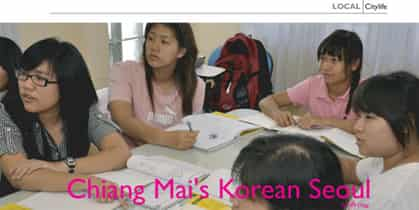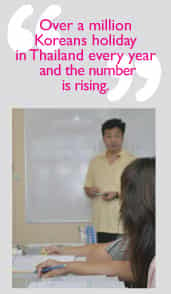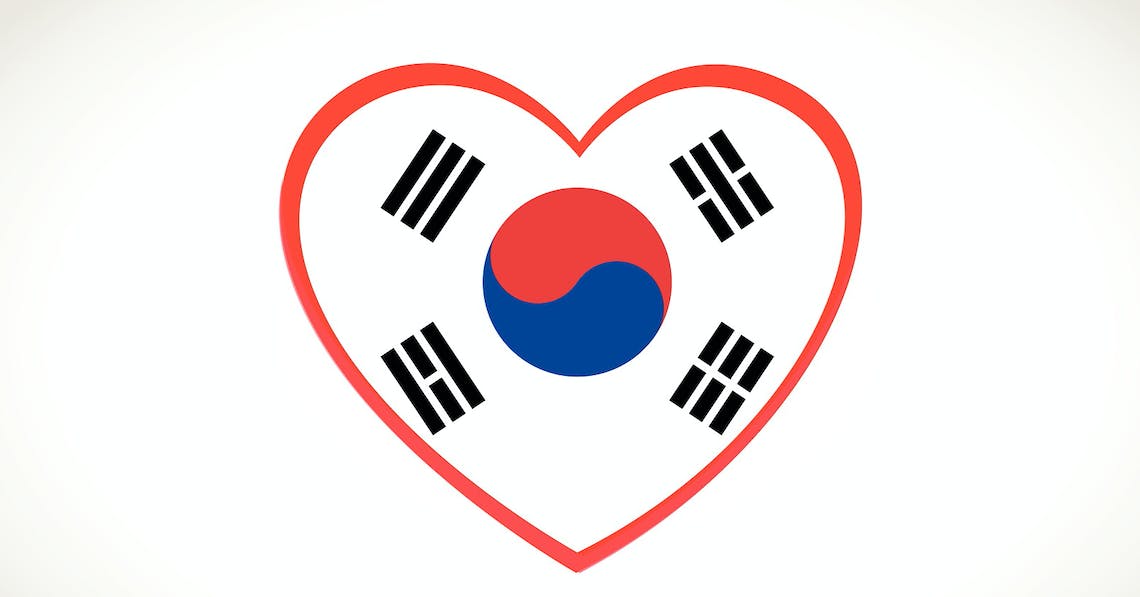
June, 2009.
“You cannot ‘love’ chocolate in Korea,” ajarn Shim explained as he deftly fried another mosquito with his zapper racket. “The word ‘love’ can only be applied to a very special person.” Looking around the language class at the Korean Cultural Centre, I wondered if that applied to the armies of Thais who are having a very obvious love affair with all things Korean.
But why is this? Why are all these Korean language schools springing up? Why is it that in the restaurants around Nimmanhaemin there is a plate of raw Kimchi where my pad thai used to be Taking the class with me was Nott. She had been to high school in New Zealand where her best friends were Korean. Koreans and Thais tend to gravitate towards each other more than with other Asian nations, she told me. There is a definite affinity between Bangkok and Seoul.
It used to be that Japan was the major influence in Thailand, explained Jane, a teacher at the YMCA, but now it has switched to Korea. Over a million Koreans holiday in Thailand every year and the number is rising. Many do no have English as a second language. Jane also works in the tourist industry and explained that it is becoming increasingly advantageous to speak Korean in the hotels and on the golf courses.
The Korean brand is being aggressively pushed abroad. Just watch a few minutes of Arirang, the English language Korean station, and you could be forgiven for thinking that your parents really let you down by not being Korean. Even the Thai premier is a fan of the Korean entertainment industry declaring at the ASEAN summit in April this year that Thailand could learn a lot from it.

Korea’s soap operas with titles such as Full House, My Girl and I Love You, Don’t Cry are watched by devoted fans across Thailand. According to the TV listings these shows involve young, successful, beautiful people ‘involved in endless love problems’. Even these are vehicles for selling the culture, explained Jane, for example, they will show you how to cook Korean food by weaving a recipe into the storyline. Thai soaps don’t do things like that.
But where soap operas and the arts are attractive to older Thais it is the boy and girl bands that really float the teen boat. I asked Garfield, a 14 year old girl who already has four languages under her belt what the difference was between Thai boy bands and Korean and got the answer: Koreans boys are clean and clever. They would make good boyfriends. The Thai boys just copy them. I can already sing along to my favourite pop songs and learning Korean will help me understand their meaning.
If that’s not a reason to learn another language then I don’t know what is.
I refrained from telling Garfield about the Time Magazine article I had just read exposing the deep rooted corruption behind those clean living boys. That would have been cruel.
The thing that really struck me about the classes at the Korean Cultural Centre and the YMCA was that it was an all girl affair. Ajarn Shim explained that he did teach boys, but his students were seventy percent girls. Pair, a 19 year old university student studying at the YMCA, explained that for the boys it is more about fashion, but for girls the overall culture was the attraction, and that is why she was learning the language.
But why are the Koreans so popular with the Thais? The final word on this goes to a Thai friend who pithily explained: “
